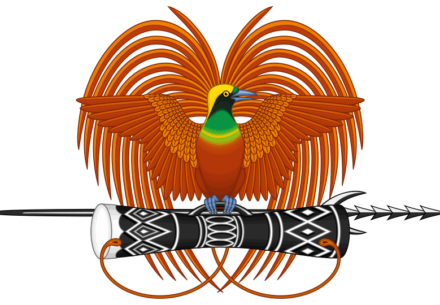Economy
- Climate of PNG
- Constitutional Framework
- Cultural Events
- Cultural Institution
- Cultural Life
- Daily Life and Social Customs
- Decolonization
- Demographic-Trends
- Finance
- Education
- Economy
- Drainage-Soil
- History
- Health-Welfare
- Housing
- Justice
- Land
- Labour-Taxation
- Local-Government
- Media-Publication
- Manufacturing
- National Anthem and Pledge
- National Politics in the 1990s
- PNG History
- People – Ethnic Groups
- Plant and Animal
- PNG Public Holidays
- Political Process
- Postcolonial Politics
- Regional Relations
- Relief
- Religion
- Services
- Settlement Patterns
- Sports and Recreation
- Trade
- Transportation &telecommunications
Agricultural production, most of it from subsistence farming, accounts for about one-third of the country’s gross domestic product. In the archipelagoes of the north and northeast, yams, taro, and bananas are grown as staple foods. These were formerly also the staple foods for Highlanders, who now mostly rely on sweet potatoes known as kau kau. Throughout much of the Highlands, carefully tended gardens dominate the landscape; some are arrayed in checkerboard patterns defined by drainage ditches, and others are circular mounds built on compost to warm and enrich the soil.
In the north the intensive cultivation of fertile soils gives way to swidden (slash-and-burn) cultivation of taro and yams in the forests of the foothills. Those thinly populated areas in turn give way to sago swamps along the courses of the great Ramu and Sepik rivers. In the slightly more elevated areas away from the main rivers there are extensive areas of poor grassland with a high water table that are used for swidden cultivation and hunting.
Almost all commercial crops are exported, although the domestic vegetable market is growing rapidly. After 1975 smallholders increasingly took over the bulk of export crop production, replacing foreign-owned plantations.
High-quality Arabica coffee is grown throughout the Highlands, mostly by smallholders; Robusta coffee is grown on the north coast and cacao in the islands. In the colonial era copra was the premier crop in lowland areas, but now only small amounts are produced, together with some rubber in the southern region.
The production of plantation crops has suffered from declining terms of trade and was mostly stagnant from the 1980s. The major exception has been the cultivation of oil palm in West New Britain (on previously little-used volcanic soils) and on the eastern mainland, boosted by foreign investment.
Forest exploitation, dominated by foreign-owned logging companies, has been extensive, particularly along the north coast, in parts of the southern region, and on New Britain and New Ireland. At times logs have accounted for one-tenth of the value of national exports, but that proportion fell by about half during the Asian economic crisis of the late 1990s and only recovered slowly in the first decade of the 21st century.
Forestry was a controversial industry, with logging companies developing connections with the political elite, and it was marked by corrupt practices including improperly issued licenses, mislabeled species, transfer pricing manipulation (the practice of hiding the real value of transactions—e.g., by undervaluing exports—in order to maximize profits), tax avoidance, environmental damage, and lack of reforestation.
Tuna fisheries have great potential and foreign-owned canneries have expanded, but licenses have been sold cheaply and fishing zones monitored poorly.

Postal Address:
Department of Foreign Affairs
P.O Box 422, Waigani.
National Capital District (NCD)
Papua New Guinea (PNG)
- Central Government Office, Kumul Avenue, Waigani, N.C.D
- inquiries@dfa.gov.pg
- +675 301 4100
External Links
- Goverment Departments and Agencies
- Department of Prime Minister and National Executive Council
- Department of Planning & Monitoring
- Department of Treasury
- Department of Finance
- Department of Personnel Management
- Department of Justice & Attorney General
- National Parliament of Papua New Guinea
- Immigration and Citizenship Services Authority
- Papua New Guinea Tourism Authority
- Investment Promotion Authority
- Kumul Consolidated Holdings
Subscribe to Our Newsletter to get Important News, Amazing alerts & Inside Scoops:




